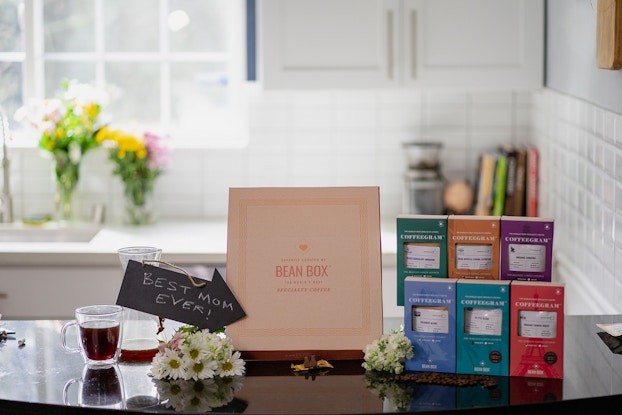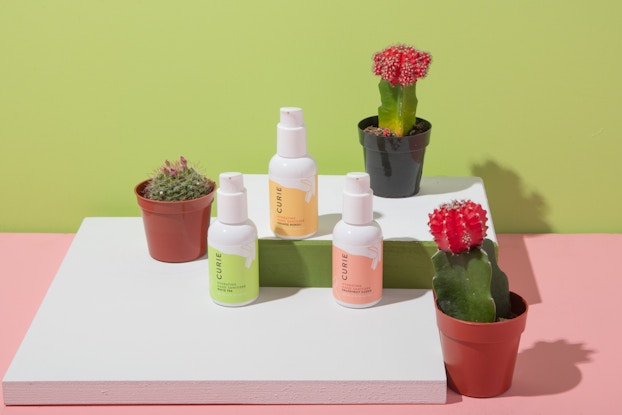
Three tips from startup executives on turning pandemic pivots into new business opportunities:
- Adjust your product assortment or service offerings to cater to — and capitalize on — new consumer needs.
- Tap tech to automate business functions, such as manufacturing, to boost efficiency and streamline operations.
- Add a layer of premium goods or services at higher price points to both counter inflationary cost hikes and offer consumers new, bespoke experiences.
Operating a startup through the pandemic has been no small feat. The ever-changing circumstances have forced many founders and company leaders to make difficult decisions in every arena — from product assortment to personnel.
A trio of startups managed to turn pandemic-informed decisions into business gains poised to reap long-term value.
Bean Box, a specialty coffee subscription service, grew its subscription revenue by over 100% year over year in 2021 by investing in manufacturing automation and product development; personal care brand Curie made its mark on the category with a hydrating hand sanitizer launch; and bridal startup Azazie found success by being one of the first retailers in its market to cater to the specific needs of the pandemic wedding consumer.
Below, founders and business leaders of Bean Box, Curie, and Azazie share the inside stories behind the crucial business decisions made during the pandemic, and how those decisions have positively impacted their businesses going forward.
Bean Box: Investments in manufacturing automation and premium coffee collections drive hefty sales gains
Matthew Berk, co-founder and CEO
During the pandemic we started to see six-month lead times on [receiving] a variety of equipment, from tape dispensers to thermal printers. To mitigate the risks of not having the equipment we needed to make our product, we made an early decision to acquire and invest in automation equipment.
We tripled the size of our facility so that during peak demand season in both 2020 and 2021 we could operate as safely and efficiently as possible. Automation not only brings efficiency in general, but it also helps maintain a safe working environment for our team, by limiting the number of by-hand operations, and hence the overall density of people in our facility.
The largest change we have made as a result of the pandemic is responding to increased product costs with new and unique offerings that warrant price premiums. For example, during holiday 2021, we developed our 12 Mornings of Coffee advent calendar, which sold out within a few weeks. For Valentine’s Day gifting season, we [introduced] the Coffeegram Collection. Coffeegram is now a permanent SKU and is being featured as a Mother’s Day gift.
Both products are entirely new and unique in the world of coffee, provide more of an experience, and therefore warrant a price premium, in real contrast to the rising prices of basic commodities consumers are seeing everywhere.
Our 2021 manufacturing goal was to have five times the amount of product [made] as we had in 2020, and these pandemic-fueled decisions were indeed successful. Based on these decisions, we’re happy to see that our direct channel, e-commerce, and subscriptions grew 62% year over year in 2021.

Curie: Taking matters into its own hands — ‘our team shipped hundreds of pre-orders in my living room’ — paves the path to big retail
Sarah Moret, founder
Curie already had plans to launch a hydrating hand sanitizer in October 2020. When the pandemic hit, we quickly pivoted and launched six months ahead of schedule. At the time of launch, sanitizer was sold out everywhere and Curie wanted to help in the best way we knew how: by providing a better hand sanitizer that turned a utility into a daily luxury.
Launching a new product in the early days of a global pandemic came with massive challenges on the supply chain and operations side of the business. Since we moved our timeline up by six months, we were crunched for time, needing to source 25,000 bottles and pumps practically overnight. Once we launched our hand sanitizer for pre-order, we faced another major setback: delays across mail carriers and a fulfillment center located in a hard-hit area of the country. We didn’t want to miss the ship date we promised pre-order customers, so our team shipped hundreds of pre-orders ourselves in my living room to save time.
In November 2020, we were able to enter over 90 Nordstrom stores nationwide and online with our Hydrating Hand Sanitizer, making us one of the first hygiene products to enter the retailer. It’s these kinds of partnerships that have the potential to take our distribution to the next level and literally keep us going.Sarah Moret, founder, Curie
In less than six months after debuting the sanitizer on our DTC site, we sold 130,000 bottles and the product quickly became our No.1 best seller, accounting for 40% of our sales in 2020. Curie was also able to donate half of the first batch of our Hydrating Hand Sanitizer to first responders.
In November 2020, we were able to enter over 90 Nordstrom stores nationwide and online with our Hydrating Hand Sanitizer, making us one of the first hygiene products to enter the retailer. It’s these kinds of partnerships that have the potential to take our distribution to the next level and literally keep us going.
[Read: Big Brands’ Inventory Management Partners Share Top Tips to Slay Supply Chain Snarls]

Azazie: Adjusting its product mix for new consumer needs, like small and virtual weddings, boosts bridal gown sales 200%
Ranu Coleman, chief marketing officer
[In light of the pandemic,] the first change Azazie made was to our design strategy. We launched a new line called “Azazie Essence,” which offers bridal gowns for elopements, courthouse weddings, and smaller scale events. The silhouettes in this collection are simple and elegant, which are more appropriate for a wedding in a backyard or a virtual celebration. We were also one of the first wedding apparel retailers to launch face masks to match the bridal and bridesmaids’ dresses fabrics and colors for men and women.
These initiatives were implemented by working cross-functionally with our internal teams to move fast and give our customers what they needed during a time with a lot of unknowns and ambiguity. The focus for us was to put our customer first, listen to what they needed, and move quickly to provide that from the product assortment perspective, and find ways to give back to our community. These changes helped Azazie increase bridal gown sales by 200% in addition to increased accessory sales from the launch of face masks which continue to be a strong category for us.
Always listen to your customer and work on providing them with the solutions that they need. As a business, you have to be agile and adaptable to succeed in an uncertain retail landscape. [This year] also has unknowns as the pandemic shifts, and with one of the largest wedding booms in store for the year, we are continuing to expand our product categories and our offerings in terms of products to best suit what our customers need.
CO— aims to bring you inspiration from leading respected experts. However, before making any business decision, you should consult a professional who can advise you based on your individual situation.
Follow us on Instagram for more expert tips & business owners’ stories.
CO—is committed to helping you start, run and grow your small business. Learn more about the benefits of small business membership in the U.S. Chamber of Commerce, here.

What can membership do for your business?
Gain tools to stay informed, competitive, and connected by becoming a U.S. Chamber of Commerce member. Membership gives you direct access to expert policy insights, economic updates, and exclusive resources designed to help your business thrive. From behind-the-scenes analysis from D.C. to exclusive discounts and expert support, U.S. Chamber membership helps you navigate change and seize new opportunities.







